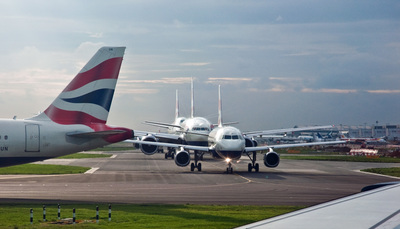MAA event looked forward to 2021
This year has been a tough one, full of unprecedented challenges. The aerospace industry has been hit with one of the worst slumps in demand -- but supply chain companies in the Midlands have been rising up and finding new ways to take their businesses forward as they prepare for 2021.
That’s why, last week, we organised an event for supply chain companies, sponsored by Heller Machine Tools, that gave over 150 participants the chance to hear the latest market forecasts and share opportunities in civil and defence aerospace as well as in a variety of sectors suitable for aerospace suppliers.
When will aviation and aerospace rates recover?
The event opened with an excellent, helicopter view of the market from Klaus Mueller, Senior Advisor, AeroDynamic Advisory. He showed the continued impact of Covid-19 on aerospace, including supply chains and the MRO market. Manufacturing and MRO supply chains for some aircraft are expected to begin recovering in 2021 as demand for flying picks up. However, others are not expected to fully recover to pre-pandemic levels until 2023 or beyond.
Preparing for the aircraft subsystems of the future
Stephen Cowan, VP of the Global Technology Centre UK, GKN Aerospace - Civil Airframes, gave insights into new aircraft wing systems and will be offering MAA members the chance to visit thew new centre when the pandemic has passed.
Stephen is also the Chair of the Aerospace Growth Partnership’s Manufacturing and Supply Chain Working Group and explained the opportunities that body is developing for the UK supply chain on additional aircraft subsystems of the future.
Opportunities for the UK supply chain in defence
Andrew Kennedy, Strategic Campaigns Director, FCAS, and Carla Timmins, Head of Strategic Partnering and Supply Chain, FCAS, BAE Systems, made a very informative presentation on the UK Combat Air Strategy and the Tempest programme. Lead partners like BAE Systems will be reaching out to the UK supply chain in 2021 as they seek key manufacturing capabilities and new technologies.
Creating complementary clusters to solve challenges
Collaboration has always been important in the aerospace industry and will be key to the Midlands cluster bouncing back from the pandemic stronger than ever.
Clive Lewis, Managing Partner, Achieving the Difference, shared advice for working collaboratively to secure profitable opportunities from a Through Life Support strategic perspective. There are potential market openings for supply chain companies to form their own clusters with complementary capabilities to meet large organisations’ challenges.
The importance of aligning to customer requirements
Boeing is monitoring the impacts of the pandemic deep into its own supply chains and Denzil J. Lawrence, Global Supplier Development, Boeing Enterprise Operations, shared his expert perspective around whether the restructuring of some supply chain segments, as the industry emerges from the crisis, could offer opportunities to UK companies that have business strategies aligned to customer requirements.
Suppliers need to interpret their customers’ forecasts
Dominic Cartwright, Chief Executive Officer, Gardner Aerospace and Director, MAA, gave participants a panoramic view across the supply chain tiers from a company at the heart of it. He reviewed information on the latest production forecasts from the aerospace primes and shared his expertise on how – and, crucially, when -- these forecasts would flow further down the supply chain. Business leaders must be dynamic, spending time interpreting what the latest forecasts mean for their own companies and be prepared to adjust schedules in line with customer requirements.
Realigning core competencies and capabilities
Samantha Buckton, VP Procurement and Commercial, Bromford Industries and Director, MAA, encouraged strategic thinking on how companies at all supply chain tiers can realign their organisation’s core competencies and capabilities in line with emerging market opportunities.
Many companies will be developing new strategies in the context of the pandemic and Samantha stressed the importance of linking their business development strategy directly with their own procurement strategy. Changing customer requirements, and the need to react quickly, could affect in-sourcing and outsourcing decisions – and these in turn would impact lower tier companies.
Opportunities in rail in the Midlands
With many aerospace companies looking at diversifying, rail was presented as a current opportunity by Elaine Clark, Chief Executive Officer, Rail Forum Midlands. She shared specific examples of they types of work packages that would be most relevant for the capabilities and strengths of aerospace suppliers including fuel technologies, maintenance techniques, light-weighting of materials (advanced composites and manufacturing) and train interiors.
A space industry cluster for the Midlands?
During the last session of the day, Dr. Chloe Billing, Birmingham Business School, University of Birmingham, explored the feasibility of developing a space industry cluster in the West Midlands. She provided fascinating insight into the emerging business opportunities in a sector which already involves some of the MAA’s member companies ranging from precision manufacturers to electronics and electrical systems firms.
Although there are many challenges ahead, it is advanced levels of capabilities, competencies, technologies and innovation that give aerospace companies a competitive edge. Supply chain companies in the Midlands are part of one of the strongest regions in the world and, although recovery will take time, participants at this event were reassured we will bounce back stronger than ever.

Picture of aircraft queuing for take-off at Heathrow thanks to Phillip Capper






